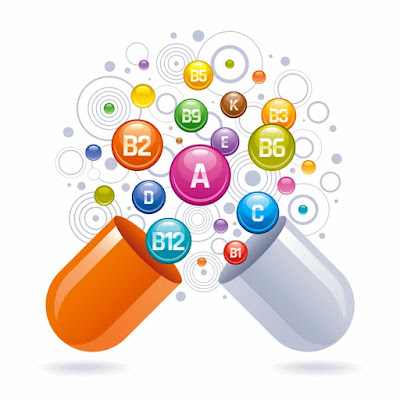5 Supplements to stay healthy
In this fast-paced world, when there is hardly any time to spend on our own, staying fit and healthy can be challenging.
Many of us struggle to find time to exercise and eat right, so the risk of falling ill or developing chronic diseases increases significantly. Even those who can stay active and follow a healthy diet will struggle in the long run if their nutrition isn’t optimal. Many factors, such as stress levels, sleep quality, and food, impact your overall health.
To give yourself an edge in this cutthroat world and stay as healthy as possible, you need to pay special attention to your diet by taking certain supplements.
Why Should You be Taking Supplements?
Ever since people have been aware of the importance of eating right, there has been a massive focus on eating healthy foods. However, you might not be aware that your body cannot absorb all the nutrients it needs from food alone—the mineral content in the soil where your fruits and vegetables are grown impacts their nutritional content.
The same goes for animals whose meat has specific amounts of the same nutrients. In addition, some nutrients are harder to absorb, which means that people who don’t make a point to eat particular foods are likely to become deficient in them.
For example, calcium is primarily found in dairy products and can be challenging to absorb. Iron, which is needed for red blood cells, is mainly found in red meat, beans, and spinach.
Vitamin D
Vitamin D is a fat-soluble vitamin that is essential for overall health. It is best known for its role in preventing osteoporosis but has many other benefits. It helps keep your bones and teeth strong, boosting your immune system and avoiding certain types of cancer.
Vitamin D can be found in certain foods, but it is mainly made by our bodies when we are exposed to sunlight. Adequate amounts of vitamin D can be achieved by exposing 15% of your skin to sunlight for about 30 minutes weekly. Unfortunately, the vitamin D levels in many people's blood are low due to a lack of direct sunlight exposure.
Many people struggle to get their required vitamin D levels and should take a supplement.
Vitamin B12
Vitamin B12, also known as cobalamin, is another nutrient many people don't get enough of. This vitamin is essential for maintaining healthy nerves and red blood cells. Vitamin B12 deficiency is most common among the elderly since their body can't produce enough.
Taking a vitamin B12 supplement is recommended mainly for seniors. Since your body's ability to absorb B12 declines as you age, seniors are at a higher risk of developing B12 deficiency.
Studies show that people who take a vitamin B12 supplement are less likely to develop a fault. Although vitamin B12 is mainly found in animal products, You can find Vitamine B12 in certain fortified foods, such as cereals.
Magnesium
Magnesium is a mineral that is essential for many biochemical processes in the human body. Unfortunately, many people are deficient in this mineral due to the processed food diet and lack of magnesium-rich foods in our diets. Magnesium deficiency can be a real issue, especially for those under high stress, who consume excessive amounts of coffee or have poor sleeping habits.
Magnesium is vital in keeping your muscles and nerves healthy, regulating blood pressure, and strengthening your bones.
It also helps in lowering your risk of developing heart disease and diabetes. Unfortunately, Americans are consuming much less magnesium than they should. Taking a magnesium supplement would help prevent deficiency and its potential health risks.
Omega-3 Fatty Acids
Omega-3 fatty acids are polyunsaturated fatty acids that are essential for good health. They are mainly found in fish but can also be found in certain plants, such as flaxseeds and walnuts.
People who don't consume enough omega-3s are at a higher risk of developing heart disease and certain cancers. Most people don't get enough omega-3s in their diet due to the rise in popularity of vegetarian and vegan diets. Vegan diets are deficient in omega-3s due to the lack of fish and eggs.
An omega-3 supplement can help you get all the omega-3s you need without compromising your diet.
Zinc
Zinc is an essential mineral in many biochemical processes in the human body.
It is found in every cell and is necessary for good health and proper growth. Zinc is vital for athletes and those who are physically active. It is needed for muscle growth, tissue repair, and wound healing. Unfortunately, many people's diets are deficient in zinc.
If you eat a balanced diet, you are likely to get enough zinc, but you may not get enough if you eat a poor diet. Those who don’t eat enough zinc-rich foods are at a higher risk of developing zinc deficiency.
Vitamins and minerals are essential for good health and should be included in a healthy diet. However, many people cannot get enough of the low nutritional content of many foods today.
A daily multivitamin can help you bridge the gap between your nutritional intake and requirements. If you are not eating a healthy diet, you should take supplements as insurance against nutritional deficiencies. You will likely benefit from specific supplements even if you eat a healthy diet. To stay healthy and fit, you need to take care of yourself.
That means eating right and exercising regularly, but it also means taking the right supplements.


